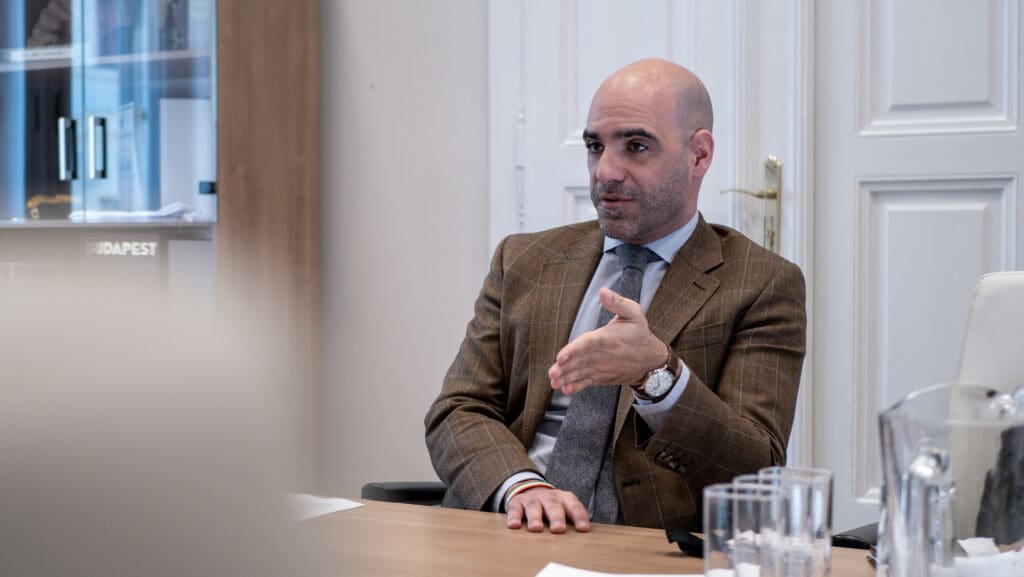When President Joe Biden signed the so-called Respect for Marriage Act enshrining homosexual ‘marriage’ into law on December 13, 2022, Donald Trump hosted a celebratory party at Mar-a-Lago for LGBT activists. “We are fighting for the gay community, and we are fighting and fighting hard,” Trump told the crowd. “With the help of many of the people here tonight in recent years, our movement has taken incredible strides, the strides you’ve made here is [Sic] incredible.” Few social conservatives noted the fact that Trump referred to the LGBT movement as “our movement” or Melania Trump announcing her campaign to woo LGBT Americans into the new GOP coalition.
It was a significant moment that revealed a very different country and culture than the one that had existed during the previous Republican presidency, in which President George W. Bush had not only opposed same-sex ‘marriage’ but championed a constitutional amendment to ban it during the 2004 presidential campaign. In a 2022 essay in First Things and a follow-up 2024 book titled Life in the Negative World: Confronting Challenges in an Anti-Christian Culture, evangelical writer and consultant Aaron Renn laid out a new chronological framework for understanding the cultural shift in the United States:
- Positive World (1964-1994). Society at large retains a mostly positive view of Christianity. To be known as a good, churchgoing man or woman remains part of being an upstanding citizen in society. Publicly being a Christian enhances social status. Christian moral norms are still the basic moral norms of society, and violating them can lead to negative consequences.
- Neutral World (1994-2014). Society takes a neutral stance toward Christianity. Christianity no longer has privileged status, nor is it disfavored. Being publicly known as a Christian has neither a positive nor negative impact on social status. Christianity is one valid option among many within a pluralistic, multicultural public square. Christian moral norms retain some residual effect.
- Negative World (2014-Present). In this era, society has an overall negative view of Christianity. Being known as a Christian is a social negative, particularly in the higher status domains of society. Christian morality is expressly repudiated and now seen as a threat to the public good and the new public moral order. Holding to Christian moral views, publicly affirming the teachings of the Bible, or violating the new secular moral order can lead to negative consequences.
This chronology, it must be emphasized, is a framework rather than a work of historiography, but it is still a very helpful one. Renn notes in Life in the Negative World that the election of Donald Trump itself is evidence of the “negative world”—that conservative evangelicals were willing to accept and eventually support a man who had lived an openly amoral lifestyle illustrated the fact that the times had changed. Renn does not attempt to explain the catalysts for secularization or the decline of American Christianity—those subjects, he notes, are beyond the scope of the book—but briefly lists a few, including the collapse of the WASP establishment; the sexual revolution and 1960s social revolution; the end of the Cold War; the rise of the digital age; and deregulation combined with corporate consolidation producing de facto “monopolies or oligopolies.”
Renn also details the Christian response to each of these three “worlds.” In the “positive world,” Christians utilized the culture war strategy, in which they fought to stop or reverse the declining influence of Christian morality; this gave rise to what is generally referred to as the ‘Religious Right.’ One of the key organizations in this movement, the Moral Majority, indicates the belief that Christian values are still dominant. In the “neutral world,” the strategy was cultural engagement, perhaps best articulated by the late Tim Keller of Redeemer Presbyterian Church in New York City. Renn writes:
Rather than fighting against the culture, they were explicitly positive toward it. They valued and affirmed urban lifestyles, vocation and career orientation, and the life of the mind. Rather than denouncing secular culture, they sought to confidently meet that culture on its own terms in a pluralistic public square. They believed that Christianity could still be articulated in a compelling way and had something to offer in that environment, even as they wanted to challenge the aspects of the culture that were in conflict with Christian teaching. They wanted a presence in the forums of the secular elite media, not just engagement with Christian media or their own platforms.
Renn’s book aims to fill a void: Christians—but specifically, evangelicals—do not yet have a strategy for the “negative world.” “Evangelicalism now finds itself in a state of flux, and its future as a coherent movement is in doubt,” Renn writes, noting the ways in which Trump has divided American Christians. “In part, this results from its failure to develop strategies designed for the negative world in which Christians are now a moral minority and secular society is actively negative toward the faith.” In many ways, he notes, those least concerned with the approval of the elites or secular society at large are the most likely to thrive in the “negative world”—those who constantly seek to implement a strategy of cultural engagement in an anti-Christian culture are likely to be frustrated at best and pushed into compromise at worst.
Renn is careful not to dismiss the strengths of previous strategies. He writes:
In adapting to the negative world, the best and most relevant parts of the other models should be honored and retained. The culture warriors, for example, understood that sometimes it’s necessary to be lower status and unpopular with society’s elites. The seeker sensitives were focused on the Great Commission and ensuring there were no artificial, man-made barriers between people and the gospel. The cultural engagers understood the value of the life of the mind, as well as having a more sophisticated understanding of cultural power than other evangelicals, drawing heavily from the insights of sociologist James Davison Hunter, author of To Change the World.
Renn’s Life in the Negative World is a helpful sequel to Rod Dreher’s The Benedict Option: A Strategy for Christians in a Post-Christian Nation (2017). Renn’s background is as a consultant, and he emphasizes throughout the book that he is not a pastor or a theologian. He is offering only practical strategies. For example, Renn emphasizes that it is essential for Christians to pursue excellence—whether you are a tradesman, an academic, an artist, a doctor, or something else. This can also facilitate an economic network within the national economy, existing within and alongside the existing one. The “life of the mind” is also essential because, in the years ahead, Christian leaders will have to explain and defend what they believe and why—especially to upcoming generations in their own communities.
Renn defines “personal” as “how we live and structure our individual lives and that of our households.” Renn emphasizes that, until now, we have been able to ignore much of what the Bible says about the high cost of following Christ. That will not be true in the “negative world.” The consequences of being Christian will be personal, professional, and cultural, and we need to be prepared for that (Dietrich Bonhoeffer called this “the cost of discipleship”). Christians should take note of this point in particular—a generation that cannot even give up Netflix should ask themselves if they are prepared for genuine sacrifice. We have become, generally speaking, wealthy and comfortable, and Renn encourages us to consider what it looks like to be a Christian in Nigeria, China, or North Korea. Western Christians have, by any standard, been extraordinarily pandered.
Renn’s other practical advice is also helpful. He advocates becoming “antifragile,” paying down debt and working towards financial independence as both “cancellation insurance” and expanding one’s personal capacity to donate money to worthy Christian causes. Ownership of spaces, says Renn, is also important. “Without ownership of the core places, institutions, and platforms you rely on, you’re exposed to potentially existential risk,” he writes. “Consider social media. Many people have built lucrative careers on social platforms like YouTube or Instagram. But because they’re using a platform owned by someone else, their livelihood and very digital presence can be erased at the click of a few keys or a change in an algorithm.”
Antifragility also involves church leaders deliberately and thoughtfully pondering the long-term health and survival of the institutions they are responsible for. Many mainline Protestant churches, for example, have collapsed. Why? Many churches have sustained extraordinary damage due to their coverups of sexual abuse or their refusal to act responsibly and stand on the side of justice. Is this a time bomb that will, inevitably, go off, as it did with the Catholic Church and, on a smaller scale, the Southern Baptist Convention? Renn notes that churches must actively “repair our sexual economies” and devotes an entire chapter to why churches must do far better dealing with the issue of gender.
Renn answered The European Conservative’s questions in a recent interview.
A central observation of your book is that for the first time in America’s 400-year history, the culture now views Christianity unfavourably. In your view, what are the implications of that in the context of the United States still being, for the moment, the world’s top superpower?
Clearly, the United States intends for its ideology to be extended across the globe. We see that with wokeness making inroads into Europe. Thus, the “negative world” in the U.S. is not a positive development for other countries because the U.S. will actively work to export those conditions elsewhere.
Early on in the book, you observed that the negative reception to Rod Dreher’s The Benedict Option was in part due to evangelicals not understanding how bad things have become. I found this an interesting observation, as the apocalyptic “most important election of our lifetimes” rhetoric has driven the last several presidential campaigns. You also note that the transactional relationship evangelicals initially had with Trump gave way, in many quarters, to a cultish one very quickly. How would you explain this? Does support for him have implications for an overall evangelical strategy for the “negative world”?
I think the election of Trump was ill-timed from the perspective of Dreher’s book, which came out shortly after he took office. His victory, with 80% evangelical support, probably seemed to the average person to belie the idea that Christianity was in trouble.
Evangelical support for Trump has various sources. One was simple realpolitik; people saw him as the best of two bad options. But I think it is also from evangelicals implicitly understanding that the “negative world’ had arrived. The new public morality explicitly rejected the old moral standards that they sought to see reflected in public life. So, they understood that it was no longer possible to see adherence to those standards as a voting criterion. Going forward, there will simply be fewer and fewer candidates who reflect those standards.
Evangelical support for Trump is definitely a social negative for them. In fact, it can be difficult to determine if secular elites hate them more for their social conservatism or their support of Trump.
One of the points you made that was absent from Dreher’s book—and I asked him about this at the time—is that the black church in America developed a rich tradition under horrifying circumstances. This, too, is part of the American Christian tradition. What can we learn from it?
I am not especially knowledgeable about the black church, but it is a good example of how a community can spiritually thrive in difficult temporal circumstances.
But I want to be clear that the situation faced by American evangelicals today should not be compared to the far worse circumstances faced by black Americans for much of our history.
At the same time, black Americans were also being discriminated against for being black, not because they were Christian. There was no escape from it by renouncing their faith or adjusting its contents. So, it was a different category of experience as well.
You refer several times to natural law, a collective Christian tradition largely forgotten or abandoned by Protestants (and, I would argue, one of the reasons mainline denominations collapsed so quickly in the face of the Sexual Revolution). On a wide range of contentious cultural issues, Protestants have found themselves ill-equipped to engage because we have been cut off from this tradition by previous generations. The last several years, however, have brought a resurgence of interest in natural law in Reformed circles, especially. Is this, in your view, a necessary part of “repairing our sexual economy”?
To me, “repairing our sexual economy” means principally getting and staying married, which is the normative experience, and then having and raising children successfully. Avoiding porn, reducing the divorce rate, and such are part of that.
I don’t think we need to appeal to any fancy natural law tradition to do some of this. Even secular online men’s influencers know that being addicted to porn is pathetic and should be rejected. I know more about men than women, but some of what they need is just practical, basic advice about how to thrive in this world, what women actually desire in a man, etc. Those are preconditions for marriage for men in most cases, because women want to marry a man who has something going on, not a loser.
In short, I think there’s a lot of practical, not just philosophical, things that we can bring to the table.
It is impossible to address sexual economy or gender without addressing the fact that porn addiction has become normative in most Christian communities. How can church communities respond to this threat and the damage it causes to marriages, families, and ultimately, the relationships necessary for the sustenance of healthy communities?
It’s difficult. I would look at what practically works to keep men off porn. For me, I stopped watching pornography long ago once I started aspiring to be and thinking of myself as a higher-value man. Once that psychological shift happened, the desire to watch pornography essentially evaporated. I’m not sure that would work for everybody, but perhaps it shows one positive aspect of the internet idea of being an ‘alpha male.’
What are some practical steps communities can take to become “antifragile”?
That’s a big topic I can’t do justice to. You’d certainly want to familiarize yourself with the works of Nassim Taleb, particularly Fooled by Randomness and Antifragile. You’d also want to avoid taking on huge financial obligations and avoid dependencies on single points of failure. Many evangelical churches are extremely reliant on a single, charismatic senior pastor to put butts in seats, and so if anything happens to him, the whole church could be in trouble. The multisite megachurch Mars Hill in Seattle imploded, for example, after its senior pastor became embroiled in a series of scandals.
Why, in your view, is ownership for Christians so important in the “negative world”? That concept may be counter intuitive for many Christians, as it may appear to be an unseemly focus on acquiring possessions.
Look at what happened to the recent NatCon conference in Brussels. Because they were renting a facility, they were subject to outside pressure that was able to get them cancelled from not just one but two venues. This shows that if your views are unpopular, relying on other people’s facilities and services is risky. It’s impossible to have complete ownership of every aspect of your life. It’s not realistic to expect NatCon to own a meeting facility, for example. But increasing the level of ownership reduces these pressure points.
What key challenges are posed by the elimination of physical community boundaries brought about by the digital era we have entered?
For one thing, it means that a strategy of isolation no longer works. The world is constantly bombarding us with information via our phones. So we’ve seen, for example, that many people look more to an online celebrity pastor than to the pastor of their own church for authoritative guidance on spiritual matters. This sort of thing is a big challenge.






